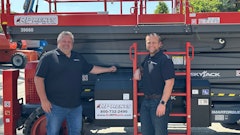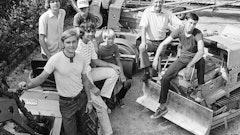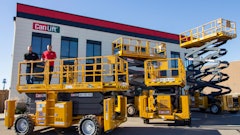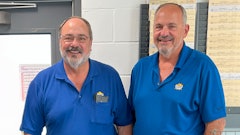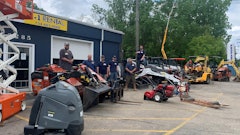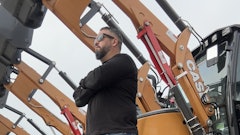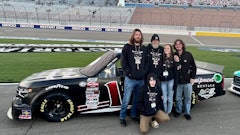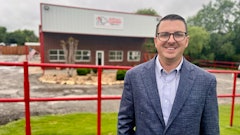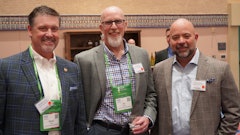
Formerly known as C & B Material Handling, Burwell Material Handling is a full-cycle single-source provider in material handling with five core divisions: equipment sales, rental, connected fleet and safety technologies, parts and service, and custom-engineered solutions.
The company was built on the foundation laid by Rod Burwell nearly 50 years ago of service, innovation, and reliability. Still family-owned, Burwell Material Handling has grown to 18 branches throughout the Midwest, South, and Mid-Atlantic. Rental connected with Matt Hicks, executive vice president of rental, and Kent Senf, president of the material handling division in June 2025.
Q. What can you tell us about Burwell Material Handling, the company?
Senf: At Burwell Material Handling, we take pride in our family-owned business with a rich history of industrial innovation and leadership. Our commitment to offering smarter, safer solutions has allowed us to lead the market for generations in other industries, and we’re looking to do the same within material handling and equipment rental. 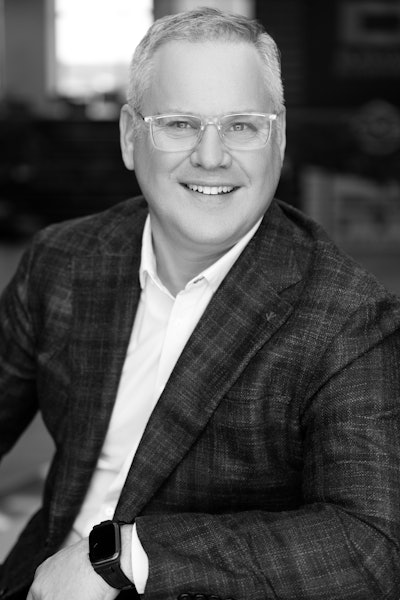 Kent Senf, President of the Material Handling Division, Burwell Material HandlingBurwell Material Handling
Kent Senf, President of the Material Handling Division, Burwell Material HandlingBurwell Material Handling
What sets us apart is our dedication to serving as our customers’ supplier of choice, driven by both customer and employee feedback. We are large enough to stay at the forefront of technology and maintain the right equipment, yet small enough to genuinely care about our customers and employees.
Integrity is also one of our key pillars. We actively engage in “voice of the customer” initiatives to understand and meet our customers’ needs. Similarly, our “voice of the team” events involve the executive team listening to employees to improve our business and create unique solutions for our customers. We believe that being the supplier and employer of choice requires us to truly listen and act on the feedback we receive.
Q. When did the company begin?
Senf: Our founder, Rod Burwell, had a spark for innovating industrial solutions and businesses that started back in the 1970s, when he created a safer and more efficient fiberglass barge cover with just $5,000 after a request from the Cargill corporation.
This product revolutionized the agricultural industry, and Rod continued to innovate, inventing and patenting the double-wall containment tank made of fiberglass to address underground gasoline tank leaks. Eventually, he partnered with Dan Cronin to establish a John Deere agricultural equipment dealership group, which the Burwell family sold in 2024, and the material handling side of the business grew out of that.
Rod passed away in March 2015, but his legacy lives on through his three sons, Peter, Blake, and Michael, who continue to uphold the family name and business values.
Rod’s lesson remains central to our operations:
Whether it costs us more money or takes more time, do it the right way. Make sure the solution is right for us and the customer, so when we put our name on it, we never have to worry about how it looks in public or how it could come back to us negatively.
Q. Can you walk us through the company’s current expansion strategy?
Senf: Right now, we have 18 branches. A lot of our customers have multiple locations spread throughout multiple states, and they were previously frustrated with having to find new suppliers for every location. They also felt like they were not heard or valued as customers by some of their other suppliers. We’ve targeted our expansion based on specific locations that are tied to shipping routes, such as river shipping or interstate and rail travel, and believe there is an opportunity to be an integral part of our customers’ future by truly listening and finding unique solutions that bring value to their businesses.
Our plans aim to create geographical coverage for our customers so we could be that single source supplier they want, and also be very quick to meet their needs. What’s exciting is that we’re not done yet; we’ve got additional acquisitions in the works that we plan to announce soon.
Hicks: It’s about covering all aspects of our customer’s business. We’re trying to build a footprint across the country where we can take care of them completely. 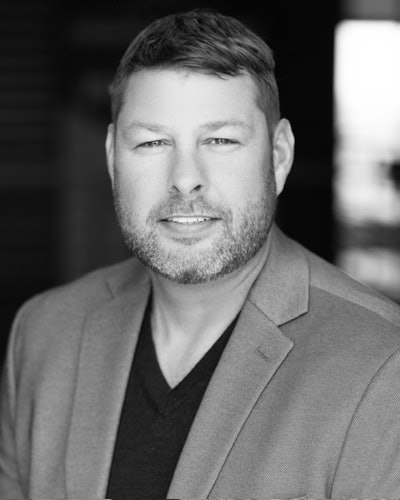 Matt Hicks, Executive Vice President of Rentals, Burwell Material HandlingBurwell Material Handling
Matt Hicks, Executive Vice President of Rentals, Burwell Material HandlingBurwell Material Handling
Senf: We’re also expanding our quantity and quality of our forklifts, skid steers, and mini-excavators. Since Matt came on board, we have done a great deal of moving the right equipment to the right places, but also improving our fleet significantly, so that when a customer comes to rent from us, we want them to have the right piece of equipment with the right safety features for them.
Hicks: On top of that, some of the fleet that we’re ordering right now (the skid steers, the mini excavators, and some of the dirt equipment) is brand new. We have the newest and most reliable equipment in the market.
Q. Many rental shops have much smaller operations. Do you think this strategy also works on a smaller scale?
Hicks: Kent and the leadership team have formed their plans and strategies from research on that exact statement: on being in the right markets and the right opportunities where we are needed. We have got to be responsive in the rental game. Our fleet has to be ready and available to go for last-minute orders. And we also have to be able to deliver and service our equipment logistically.
As we grow, we’re keeping that footprint in mind so that it’s more about being readily available to the customers more than anything else.
Senf: We don’t want to be a business just for the large customers. In fact, my heritage and history comes from southern Minnesota — working with farmers every day. We know the value of a small customer to our business, and it is extremely important.
We’re building out a rental business where we’re going to be absolutely prepared and ready in the locations that we serve, but we’re also not going to create a system where we can’t fully support each and every rental that’s out there.
For me, it really doesn’t matter if you have 100 pieces on rent or one piece. If a customer has a problem, we need to fix that problem — we want to be fully invested in that.
There are a lot of opportunities where you have rental houses that maybe have one or two locations in a smaller geographical area, and I totally respect and understand what they’re doing. We also recognize that some of those customers are going to travel and that we need to support them in the best way possible.
I think we’re threading the needle between being a small, one-location rental house and not getting so big that we can’t fully understand the needs of each and every customer that’s out there and respond to them appropriately.
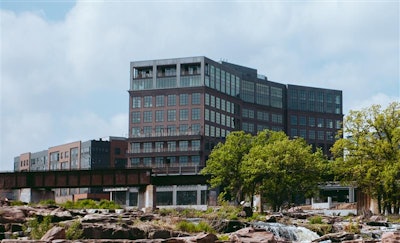 Burwell Material Handling's field service office in Sioux Falls, South Dakota.Burwell Material Handling
Burwell Material Handling's field service office in Sioux Falls, South Dakota.Burwell Material Handling
Q. How did you two get into the business?
Senf: I was with an agricultural equipment manufacturer and had a wonderful career going. One of the people who worked for the Burwell family was a golfing partner of mine, and he kept on nudging me repeatedly to sit down with Matt Cronin, who is Dan Cronin’s son, and Rod Burwell to talk about becoming part of the organization.
Eventually, I sat down with them and was convinced. They brought me on as the chief operating officer for their John Deere agricultural equipment business. I admired Rod’s leadership style because he had a unique way of leading people — his presence was felt when he entered a room, not because of what he said, but because of the aura he carried. He would walk through the back of the shop, listening to the technicians, and make his way to the front. By the time he spoke to the general manager, he knew what was happening throughout the facility, understanding it from the perspective of those doing the work.
Rod completely respected and valued the people doing the work. Growing up in a small farm town, I appreciated this approach. I loved the idea of valuing every person in the business and giving them a voice to help guide, steer, and move us in the right direction.
Over the course of the 18 years that I’ve been part of the company, I was blessed to be part of the leadership for the John Deere business. About three and a half to four years ago, I wanted to start a new venture for the Burwell family. After extensive research and understanding of the material handling, rental, and engineering solutions businesses, I felt it was a great opportunity to combine our experiences and grow in a new industry.
Hicks: I started actually with a small mom-and-pop rental company named Blue Eagle Rentals. They were acquired by Volvo Rents, which was then acquired by Platinum Equity Group, and they created Blue Line Rental.
When they were acquired by United Rentals, I went to work for Equipment Share, where I was for the last six years. Then Kent reached out. I came out and met the leadership team, most of whom have been with the company for 15+ years through these multiple different companies. That longevity at that level of leadership is very uncommon for an equipment distributor, in my experience, and it got my attention.
What’s noteworthy is that we are not trying to do something for the first time here. This team has built multiple successful businesses; they’ve been entrepreneurs across multiple different entities. It’s very seldom that you get the opportunity to work with people who have built a variety of businesses in the past and succeeded. When I heard their story and saw their integrity, I was hooked before I left that first meeting.
That’s how I ended up here. At this point in my career, I want to be surrounded by people with that kind of experience and that kind of integrity in business.
Q. Can you guys talk about the idea behind “right-sizing” and “readiness?” Why are these concepts important for equipment rental?
Hicks: Readiness is our readiness, and service is top priority when you’re talking about rental equipment.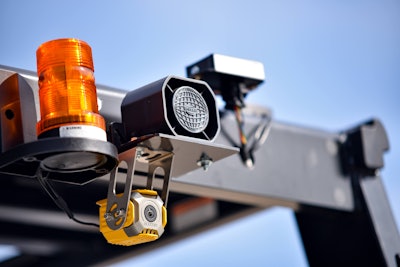 In June 2025, Burwell Material Handling announced their partnership with Arcure to bring its Blaxtair AI-powered pedestrain-detection system for all its forklift assets.Burwell Material Handling | Arcure
In June 2025, Burwell Material Handling announced their partnership with Arcure to bring its Blaxtair AI-powered pedestrain-detection system for all its forklift assets.Burwell Material Handling | Arcure
A rental asset is often needed not because of poor planning, but because something happened last minute. For example, a customer’s fleet is highly utilized, and they need an extra piece of equipment. When they call us, we have to be ready.
Our goal is that before we say we’re ready to go, our equipment is ready to go and that we’re available to send it to the job for last-minute requests. Readiness means the equipment’s been checked through, it’s going to work the way it should when it gets there, and it’s going to be on time.
In the rental industry, our reputation to respond with rental-ready equipment is all we have to go on, and that’s what we’re building this rental division on.
Q. If you could have dinner with three people from history, who would you want to have dinner with and why?
Senf: My three would be Winston Churchill, Herb Brooks, and Satya Nadella.
Churchill because I love his leadership in crisis and his strategic vision. Most importantly, he was an incredible communicator. I had the blessing to be able to go to the old war office this last year in London, where his office was. He communicated every day to his entire team and gave them that unshakable resolve. I think it would be incredible just to sit down and understand his balance of optimism and brutal honesty in really dire situations. I’m a big fan of Winston Churchill.
I’m a Minnesota kid, so I have to say Herb Brooks — the coach of the 1980 U.S. Olympic ice hockey team. Not only was he a legend, but he had just pure mastery of using psychology and insight to build incredible teams.
Satya Nadella is the CEO and chairman of Microsoft. How could you not ask him about the visionary side of the tech industry? He’s brought transformational leadership, but also has this incredible growth mindset that I am just absolutely envious of. I would just love to ask him about how he thought through the fostering of innovation in an ethical and responsible way in these emerging technologies.
Hicks: Steve Jobs, Michael Jordan, and Doc Holliday.
My number one is Steve Jobs. I’m in awe of how he could create devices that are going to impact humanity for generations to come. I’d love to ask him questions about his mindset as an innovator.
Next is Michael Jordan. Jordan got cut from his high school basketball team, but he didn’t give up. He persevered. He became the GOAT, no matter what anybody else thinks. I don’t think you should even consider LeBron James in a conversation with the greatest of all time — those comments typically come from generations that weren’t around during Michael Jordan’s career.
My third is Doc Holliday. I’d like to see what it was like in the Wild West back then — how he had to adapt and take risks as a gambler, gunfighter, and hustler. I admire that ability to be relentless at doing whatever it takes to survive.


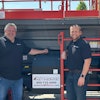

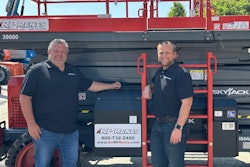
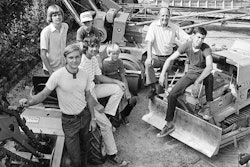


![Building Angled Sm Edit 6050b8d213f1b[1]](https://img.forconstructionpros.com/mindful/acbm/workspaces/default/uploads/2025/09/building-angled-sm-edit6050b8d213f1b1.Ygq5aAos3b.png?ar=16%3A9&auto=format%2Ccompress&crop=focalpoint&fit=crop&fp-x=0.53&fp-y=0.23&fp-z=2&h=135&q=70&w=240)

